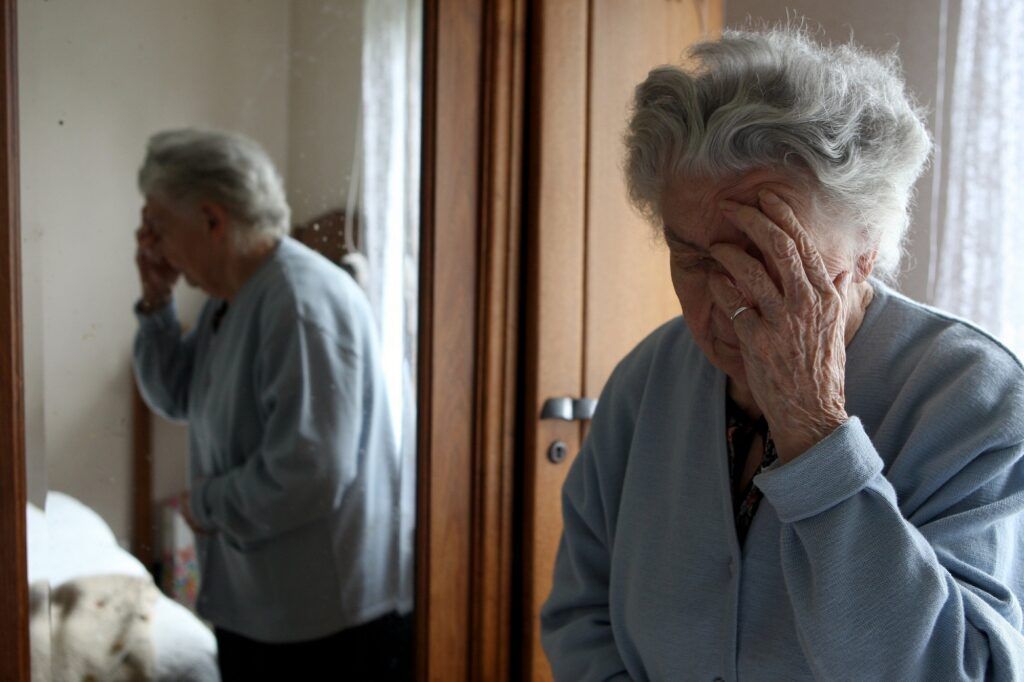 September is World Alzheimer Month, and there are some ways that everyone can be involved in helping to learn more about this dread disease, so it can be managed better and someday eradicated. Anyone in Olive Branch and elsewhere can make a donation that supports research, and anyone can volunteer at one of the many Alzheimer’s events which will be held all over the world, for instance, the Awareness Walks that will be held in many cities around the country. Senior home care professionals are frequently obliged to care for Alzheimer’s patients, and they are the first to attest to the often debilitating nature of this disease. All of us should do our part to help find a cure for this disease that robs patients of their cognitive skills.
September is World Alzheimer Month, and there are some ways that everyone can be involved in helping to learn more about this dread disease, so it can be managed better and someday eradicated. Anyone in Olive Branch and elsewhere can make a donation that supports research, and anyone can volunteer at one of the many Alzheimer’s events which will be held all over the world, for instance, the Awareness Walks that will be held in many cities around the country. Senior home care professionals are frequently obliged to care for Alzheimer’s patients, and they are the first to attest to the often debilitating nature of this disease. All of us should do our part to help find a cure for this disease that robs patients of their cognitive skills.
When to seek professional care
Obviously, the answer to the question about when to seek professional care for an Alzheimer’s patient is literally different for every single patient and for every caregiver. The actual answer in general terms should be that there is no problem with placing a loved one in a facility too soon, but there can definitely be some serious issues if you wait too long to seek professional care. If your loved one is in a situation where he/she requires a really significant amount of care, and you hold off on that professional care, there are literally an endless number of things that can go wrong.
Managing medications
If you have a senior loved one living at home, all their medications must be managed by yourself, or possibly a caregiver who visits several times a week. It’s possible to learn a great deal while providing care for your loved one with dementia, but there are some signs and symptoms which only a professional will recognize. By contrast, if your loved one is in a long-term care facility, all medications will be closely monitored and regulated. They will always be administered according to a consistent schedule, and the staff members will always be looking for any change in behavior from patients.
Issues with mobility
In most cases, the end stages of dementia and Alzheimer’s disease cause patients to have drastically limited mobility. This can be a major problem for both caregiver and patient. For example, an elderly spouse could have a great deal of difficulty helping her partner to the bathroom several times a night, and it’s entirely possible that both of them might fall during the process. The truth is all activities associated with daily living carry a certain amount of risk, and a healthcare facility will be much better equipped to handle all these activities. They will always have the proper equipment, the necessary manpower, and the appropriate training to assist patients while preventing any accidents.
Wandering around
It’s a simple matter for a loved one to exit the home without their caregiver even being aware of it, and in some cases, this can be a life-threatening scenario. Wondering may also occur in healthcare facilities, but the residents are generally restricted to certain areas of the building, and to certain outside areas. This is one of the reasons that supervised care can be so helpful for patients suffering from Alzheimer’s. Residents will be able to move around, but there is a great deal more monitoring and security which is in place to prevent them from leaving the premises or becoming injured. When someone does wander, the response time will always be much quicker, because a number of staff members will always be devoted to patient monitoring.
Stress on caregivers
The stress which Alzheimer’s patients can exert on their caregivers can be very considerable. If the caregiver happens to be elderly as well, it might be twice as hard for him/her to deal with an Alzheimer’s patient. Even minor issues can be exacerbated by stress, and that can cause a situation to quickly get out of hand. When considering the value of placing a loved one under professional care, you need to be extremely honest with yourself about your physical and emotional limits in caregiving. In a great many situations, the very best thing for both patient and caregiver is that they should be placed in a facility.
Remote caregiving
Remote caregiving, such as making frequent phone calls or trying to do video conferencing, is for the most part ineffectual when attempting to care for Alzheimer’s patients. Even family members who are right on the spot can sometimes have difficulty providing adequate care to their loved ones who suffer from this disease. It’s simply not possible to provide adequate supervision and adequate care from a remote location.
As the disease progresses, a patient’s needs will increase right with it, and that will place more strain on the caregiver, while also leaving the dementia patient more vulnerable. There are definitely more patients to contend with in a long-term care facility, but there are also a great many more caregivers. Unlike a family member who may live several towns away, staff members are on duty around the clock, to make sure that Alzheimer’s patients are properly cared for, and that their needs are being appropriately met.
